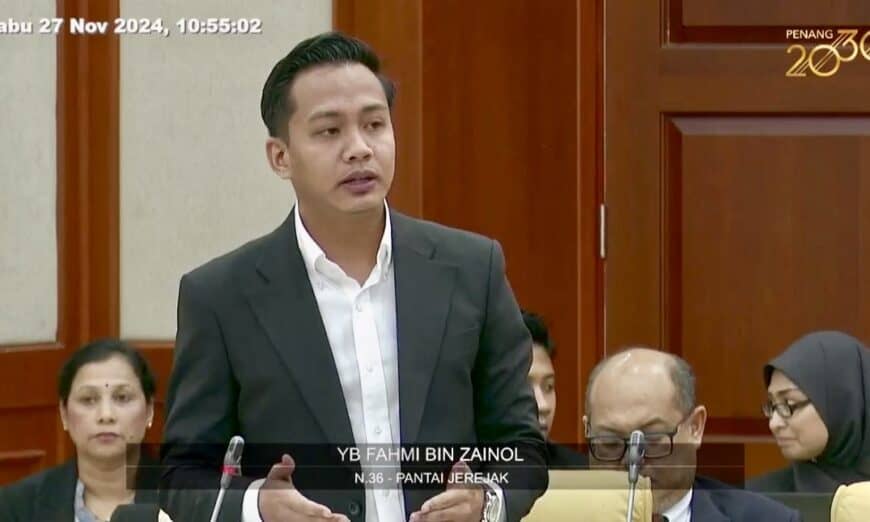THE Penang Government, through the Chief Minister Incorporated (CMI), has established Penang Agrotech Sdn Bhd, a wholly state-owned subsidiary, to advance the state’s agrotechnology and bolster food security efforts.
State Agrotechnology, Food Security, and Cooperative Development Committee chairman Fahmi Zainol described Penang Agrotech as the ‘main executor and coordinator’ for policies, programmes, and activities under the Penang Agrotechnology, Food Security, and Cooperative Development Committee.
“The company will collaborate closely with relevant departments and agencies. It is set to begin full operations on Jan 1 next year,” Fahmi said during his winding-up speech at the State Legislative Assembly in Light Street today.
He expressed confidence in the new initiative.
“It is hoped that the establishment of Penang Agrotech will help the state generate new revenue streams while advancing sustainable agriculture practices,” he said.
Fahmi highlighted the company’s focus on reducing dependence on pesticides and chemical-intensive farming methods.
“Penang Agrotech aims to explore and introduce advanced technologies to farmers and planters in the state. This initiative seeks to ensure that the people of Penang have access to safer and higher-quality food products,” he said.
In collaboration with the state Veterinary Services Department (JPV), Penang Agrotech will establish an Integrated Ruminant Farming Centre to increase beef and goat meat production.
Fahmi described the centre as a ‘central hub for farmers and consumers’, noting that it would feature modern infrastructure and advanced livestock management systems.
“Farmers will benefit from access to healthy and affordable livestock, while consumers will enjoy safe and consistently high-quality meat products,” he added.
Fahmi also announced plans to transform two locations in the state into agrotourism hubs.
“Stesen Padi Bukit Merah in Permatang Pauh, an active rice cultivation area, has been earmarked for transformation into an agrotourism and recreational hub for the local community,” he said.
He also elaborated on the future of Taman Herba Bertam in Kepala Batas.
“This herbal park is home to over 200 species of medicinal herbs. We plan to upgrade it into a premier agrotourism destination.
“Beyond that, it will serve as a centre for herbal research, production, and traditional medicine treatments, making it the largest herbal innovation hub in the northern region,” he explained.
The state government has submitted a special funding proposal to the Ministry of Agriculture and Food Security (KPKM) to support these developments.
On another note, Fahmi provided an update on Penang’s state-owned rice brand, Beras Cap Feri.
He revealed that the brand had officially received its operating license from KPKM on Nov 13, following a six-month application process.
“The rice will be available for purchase starting December through the Agro Madani sales programme. It will be distributed through the Federal Agricultural Marketing Authority (Fama) and the Farmers’ Organisation Authority (LPP),” Fahmi said.
He emphasised the affordability of the product.
“Beras Cap Feri will retail at RM15 for a 5kg bag of high-quality imported rice, making it the most affordable option in its category,” he said.
Earlier, in replying to Mohd Yusni Mat Piah (PN-Penaga), Fahmi explained that the production of local rice in Penang is insufficient to meet the demand for Beras Cap Feri.
“As a result, the steering committee for the Implementation of Beras Cap Feri Penang, chaired by me (Fahmi), has decided to incorporate imported rice into the production of Beras Cap Feri to address the shortfall in local rice supply,” Fahmi said.
Story by Riadz Akmal

